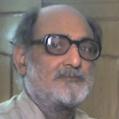
As narratives are being floated with the obliging connivance of the captive media, each day is proving to be rather too long in current Indian politics.
Just when you thought that the coming elections to India’s Parliament will turn on the issues of corruption and the plethora of pro-Hindu markers of the Narendra Modi government, you need to think again.
A recent poll conducted by the reputed CSDS reveals some very contrary results.
Considering that the survey was conducted among no less than 10,000 respondents, covering 100 parliamentary constituencies, the import of its findings is clearly more than cursory.
Asked what in their view were the most pressing public concerns of the day, 27% named unemployment, 23% price rise, 8% corruption, 8% the Ram temple, and 2% Hindutva.
The conclusion is inescapable that the revelations made available in the contents of the Electoral Bonds scheme have conclusively undermined the ruling Bharatiya Janata Party’s (BJP’s) proprietorship of probity.
Concomitantly, the reality of the “washing machine” has gone down pretty wide and far among both the classes and the masses as well, and very few are able to say that the right-wing either really cares about corruption in political life or lets the law enforcement agencies be above fear or favour in prosecuting culprits wherever found.
These trenchant exposures have had the further consequence of putting the devoted off from claims of piety sought to be associated with the new Ram temple.
It seems outrageous that Lord Ram and the goings-on of the Electoral Bonds can be reconciled, however astute the metaphysical gymnastics.
The fall-out is that concrete livelihood issues sought to be thus far side-tracked by the Modi-led propaganda machine of the ruling party have found sharp entry into the common mind, increasingly now reflected even in some media programmes.
More than a little credit may also be given to consistent opposition articulation of the real–time misery of vast masses of people, who are not now as willing to wish away their suffering under the influence of cultural triumphalism as they perhaps were weeks ago.
These dynamics therefore furnish space for the INDIA bloc to do some further hard labour and bring out more intimate details of the con that has been practiced on the populace over ten long years of hype.
Also read: Narendra Modi and the Question of Invoking Religion in Poll Speeches
What is most congenial to this project is the ideological shape of the ruling BJP’s Sankalp Patra—a declaration that not only ignores completely the two issues of top voter concern as revealed by the CSDS survey, but unashamedly proposes an ideology of “development” directed exclusively at the interests of the propertied and “wealth-creating” classes, in combination with items that can be seen to be patently majoritarian in inspiration, such as the CAA and the Uniform Civil Code.
Many well-meaning as well as cynical citizens descant loudly that the EVM may well come to be the last resort for the establishment.
This wide-spread skepticism about the truthfulness of the voting machine makes the coming deliberation of the Supreme Court of crucial significance.
The question may be asked – should not the requirement of a “free and fair” election mean that the voter is able to actually witness for herself where her vote lands, rather than be asked to trust the system that remains opaque for the most part?
If this is agreed, then what logic is there to the establishment resistance to furnish and count the printed voting slips that issue from each and every machine when the electronic vote is recorded?
The argument against this is indeed far too lame to warrant assent: if the actual casting of votes can be spread over well close to two months, why cannot the counting of votes be delayed by a few days if need be?
Not to pose the question as to why close to 120 countries should have jettisoned the use of electronic voting.
In conclusion: If the operation of the mandate comes to be indeed fair and square everywhere and in every aspect, and if the Supreme Court sees it fit in its wisdom to require a 100% use of VVPATS, as of the day it may no longer be said the results of the 2024 election are a foregone conclusion.
Badri Raina taught at Delhi University.






